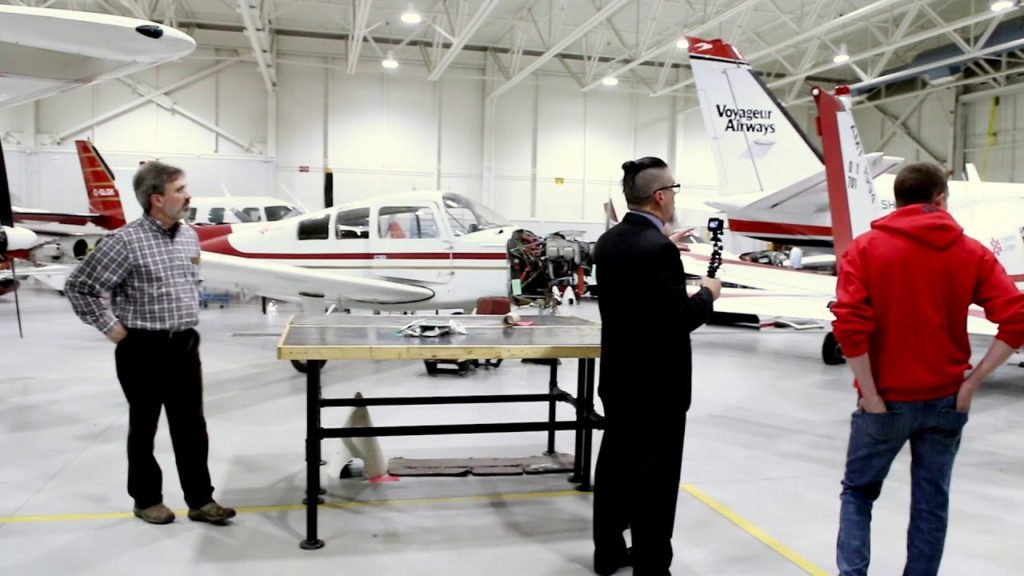Dental Hygiene Online Courses
Becoming a dental hygienist is not the easiest task, but it is definitely a rewarding one, especially for people that like to rack their brains with complicated assignments and develop their critical thinking skills even more.
As dental health care providers, you will have to learn and provide people with preventive and therapeutic dental hygiene services and teach them how to take care of their oral health on their own as well as through a dental hygienist.
Studying dental hygiene is hard, but the time spent on getting this education will be rewarding in the future, both in terms of money and of satisfactory results provided to the clients in an oral health clinic.
Student's Perspectives
Your course objectives will differ from one dental hygiene program to another, but all in all, there is a list of common practices that you will need to learn.
The main objective that you will have to study will be in regard to the dental hygiene practices of today's stomatology. Thus, you will read a lot about the way the human body functions, including anatomy, microbiology, histology, pharmacology, oral pathology, and other disciplines.
Such disciplines will allow you to understand how oral health is connected with the rest of the body, what kind of symptoms are responsible for particular diseases, and what kind of prescriptions you will need to give to your patients.
In addition, you will also develop your critical thinking and oral health promotion capabilities, as you will need to make serious decisions regarding somebody's dental hygiene and advocate them to your clients and other professionals so that prescriptions would be correct and implemented by your patients in time.
Professional conduct and Quality Assurance standards are also a big part of any medical profession, oral health included, as the cases might be severe, and you will need to know how to deal with medical emergencies in a respectful yet efficient manner that is in sync with client care safety principles.
And at last, if your educational institutions allow it, you will also have a lot of practical sessions together with your teachers, colleagues, and other healthcare providers, as when it comes to healthcare professionals, learning books is not enough, and dental hygienists need to know how to use their tools in advance.
Here is the list of disciplines that every participant of an oral health care team should know:
- Anatomy and Physiology;
- Chemistry;
- Microbiology;
- Psychology;
- Statistics and research methods;
- Histology;
- Nutrition;
- Radiology;
- Periodontology and periodontal debridement;
- Oral pathology;
- Pharmacology;
- Local anesthesia;
- Infection prevention;
- Preventive dental health promotion;
- Dental hygiene theory.
The duration of the courses offered will also depend on the educational program, but as we are talking about health sciences and dental hygiene, you cannot expect the course to end in a few months, especially if you are new to the dental hygiene profession. Thus, you will spend at least one or two years studying the dental hygiene discipline.
You will also have an opportunity to pass the National Dental Hygiene Certification Board examination, but only after successful completion of a dental hygiene program.
And aside from the learning objectives provided by the courses, you will also have a chance to work in groups together with other health care professionals and students. This is also important as it will allow you to learn through the experience of others and help each other to go through the course as well. Such contacts with future dental hygienists might also help you with your career opportunities.
All in all, you will complete the dental hygiene program knowing how to do the following list of things:
- How the human body works and the ways oral health is connected with it;
- How to diagnose different conditions correctly and how to treat them;
- What kind of plans will need to be made with a particular emphasis on patients' day-to-day dental hygiene and amount of procedures to be done in the future;
- What type of prescriptions to make and how to select the right medications for your clients;
- How to make sessions promoting oral health more successful and what communication skills can help you to tell information about clinical care in a manner that is clear to the patients.
Educational Prerequisites
Admission requirements will differ depending on the educational institutions that you have chosen.
Thus, some programs will expect you to have a prior university degree related to dental hygiene or medicine overall and will help you in your professional development by updating your already existing qualifications. Others will teach from the beginning and their terms will include high school educational requirements.
The lowest requirements will include Grade 12 with the specific minimum grade for the subjects such as English Language Arts, Biology, Chemistry, and one of the Foundations of Mathematics or Pre-Calculus.
As for the foreign students, if the course allows it, they could also participate in the dental hygiene program, but an additional IELTS test showing your knowledge of English will also be needed.
Aside from educational admission requirements, you will also need to provide a few additional documents, such as:
- Police Record Check and Vulnerable Sector Screening;
- Possession of a Standard First Aid course certificate and CPR;
- Proof of your Good Health.
As you will be working with real people in the future and studying health sciences in order to be able to help them, the Canadian dental hygienists association and thus any educational establishment providing you with an oral health care education need to know that you are capable of becoming registered dental hygienists without any risks for other people.
One thing that is always common for any educational establishment is their way of enrolling their eligible applicants. Thus, permanent residents of the city where the university or college is located and Canadian citizens will always be a priority, which means that international students will need to work that much harder to demonstrate proficiency in English and obtain a place in a particular course.
Offline Versus Online Course: What to Choose
Both types of educational programs have their own pros and cons, which is why it is important for you to know in advance what could be expected from one or another form of dental hygiene course.
For instance, an online program will be perfect for those who want to upgrade their already existing knowledge in the sphere of comprehensive dental hygiene care and do not have enough free time during the day to attend classes.
Online programs are mainly used by those students that need to work and therefore, they will be able to combine their educational desires with their work schedule.
However, if you plan to become a dental hygienist and do not have any related education received before enrolling in the course, an offline format will be the best one for you, especially if we are talking about practice sessions.
In them, you will have an opportunity to ask as many questions as you have and even touch different manikins to help you in understanding human anatomy and how our bodies are functioning.
What is more, not every online program has a clinical component that allows its dental hygiene students to learn how different oral health tools are working. And because of that, the practical part of your oral health education will be done by you alone with the help of other means. Without prior clinical sessions, you will not be able to become a decent dental health professional.
All in all, studying the dental hygiene process of care can be done both online and offline, you simply need to understand your priorities and capabilities in order to choose the best format for yourself.
Career Prospects
After you successfully complete your baccalaureate degree programs and pass the National Dental Hygiene Certification Board examination that would allow you to start your dental hygiene practice in a clinical setting, you have a wide range of opportunities regarding the places where you could work.
Both private and public sectors are available for a registered dental hygienist. Depending on your specialization, you can choose your future place of work within the following list of places with a Dental accreditation:
- General dental practice in the public sector;
- Dental clinic in any of the sectors;
- A small dental office of your own;
- Local community dental clinic;
- Healthcare institutions, such as universities and schools, where you could work both as a faculty member and as a healthcare professional.
Frequently Asked Questions — FAQ
Can you become a dental hygienist online in Canada?
You can get an online education in the dental hygiene sphere, but to become a certified specialist that can gain knowledge as well as implement it, you will need to pass the National Dental Hygiene Certification Board examination as well.
How long does it take to be a dental hygienist in Canada?
It depends on the type of education that you will get. If you are continuing dental education and decided that you would like to gain new knowledge in this sphere, the course might take 3 months. But to become an oral hygienist without any background education, the course can take 3 years.
How long is dental hygiene school in Ontario?
Depending on the type of course and the educational establishment in which you are taking it, the course can take two years in general. If you are continuing education in the clinic care sphere, it might take less time. The length of a course does not differ much, no matter whether you are in British Columbia or Ontario.




